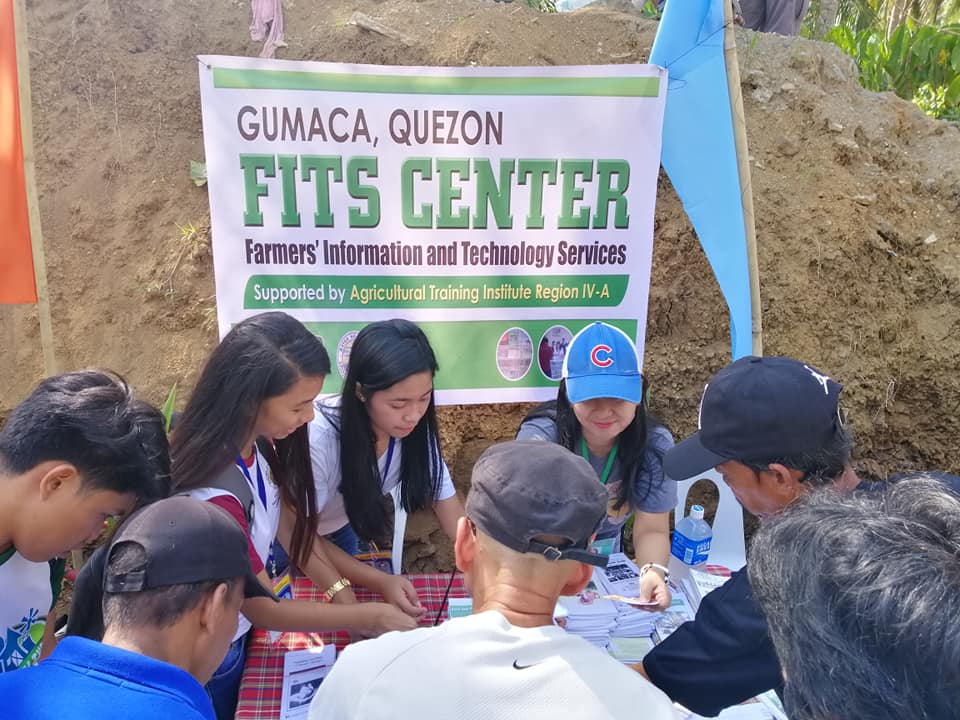Farmers Information and Technology Services (FITS) Center distributes Information, Education and Communication (IEC) materials during the launching of Coconut Model Farm in Gumaca, Quezon.
GUMACA, Quezon – A pilot project of the Department of Agriculture Regional Field Office (DA RFO) IV-A through the assistance of Philippine Coconut Authority (PCA) and Agricultural Program Coordinating Officer (APCO) Quezon, the Agricultural Training Institute (ATI) CaLaBaRZon joins the launching of coconut model farm on May 7, 2019 in this municipality.
As part of the activity, Gumaca Farmers Information and Technology Services (FITS) Center distributed Information, Education and Communication (IEC) materials. Some of the IECs disseminated were coconut recipes, handicrafts and novelty items from coconut, coco sap products, producing high value “organic and green” foods from coconut sap at village level and more.
Kakao Integrated Development for Livelihood and Transformation (KIDLAT), a private organization with 1,800 active members, was launched as the Coconut Model Farm. The organization is based in Gumaca, Quezon and has been operating since 2014. As model farm, it has to be four hectares minimum and is practicing integrated natural farming system where coconut is the base commodity.
Guests from the Department of Agriculture, its attached bureaus and agencies graced the program launching including DA Secretary Emmanuel Piñol, DA Regional Executive Director Arnel de Mesa, ATI CaLaBaRZon Center Director Administration (NIA), Agricultural Credit Policy Council (ACPC) and Philippine Carabao Center (PCC). Also present during the event were Congresswoman of 4th District of Quezon Helen Tan and Gumaca Municipal Mayor Erwin Caralian. The program highlighted the ribbon cutting ceremony and messages from the invited guests.
Some of the area stated by Secretary Piָñol was the government’s plan like adding coconut oil component to bio fuel (from 2% - 5%) for fuel efficiency and reduction of air pollution, promoting coconut water as energy drink, loan access for farmers for additional livelihood programs and installation of solar powered irrigation facilities.
Content: Ric Jason T. Arrez

